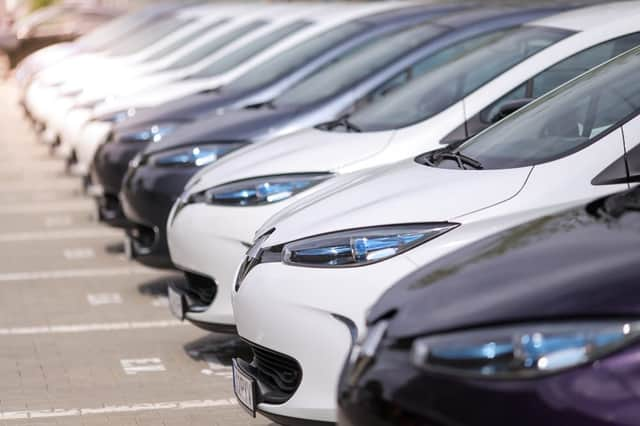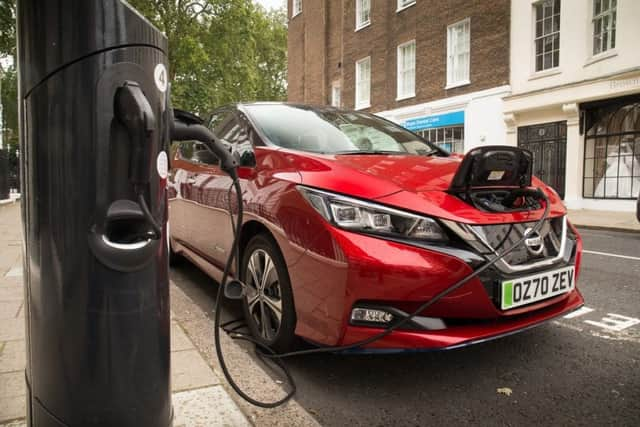Grants for used EVs needed to tackle “green gap” in vehicle uptake


The UK Government has been urged to extend its plug-in car grant (PiCG) to cover second-hand electric vehicles or risk many motorists being priced out of the shift to zero-emissions vehicles.
Prime Minister Boris Johnson has stated that the sale of all new petrol and diesel cars will be banned from 2030, and the Government has thrown its weight behind a shift to electric vehicles to cut the country’s CO2 emissions.
Advertisement
Hide AdAdvertisement
Hide AdHowever, automotive specialist Halfords has warned that current incentives around EVs are not sufficient for many households and a “green gap” between those who can afford EVs and those who can’t is opening up across the country.
The cheapest electric cars start at around £18,000 including PiCG for a Smart ForTwo or Seat Mii city car. However, most family-sized cars with longer ranges are around £30,000 and upwards.
According to a poll of drivers by Halfords, the cost of electric cars remains the main barrier for two-thirds of motorists.
While sales of new EVs are rising rapidly Halfords Autocentre’s managing director Andy Randall said that the emerging second-hand EV market needs more help to encourage more motorists to choose a used EV over petrol or diesel.
Advertisement
Hide AdAdvertisement
Hide AdHe suggested the UK Government could follow Scotland’s lead and offer interest-free loans for buyers of used electric cars. Alternatively, he said the Government could extend the current plug-in car grant, which offers £3,000 of the list price of brand-new EVs, and offer the same contribution to used car purchases.
Around 200,000 alternative fuel cars - electric and hybrid - have been bought with help from the PiCG, including 100,000 zero-emission vehicles.


“Our research indicates that a more targeted approach to EV incentives may be required if the whole country is to join the green transport revolution.” said Mr Randall.
“We believe this should include financial support for second-hand EV purchases, in the form of interest-free loans or grants, and a renewed focus from central government on targeting the ongoing EV charging infrastructure rollout in low-demand areas. This is crucial if we are to reach the ambitious 2030 target for the end of petrol and diesel vehicle sales.”
Advertisement
Hide AdAdvertisement
Hide AdMr Randalls comments come after a report commissioned by Halfords found different parts of the country are adopting electric vehicles at dramatically contrasting rates.
The analysis found that the London boroughs of Wandsworth and Barnet, and the cities of Edinburgh and Brighton have the highest adoption rates of privately owned electric and hybrid vehicles in the UK while Kingston upon Hull, Peterborough and Plymouth have the lowest.
It also found a connection between household income and electric vehicle adoption. Areas with higher average household incomes had higher adoption rates and in areas with a higher proportion of higher income households the difference was even more pronounced.